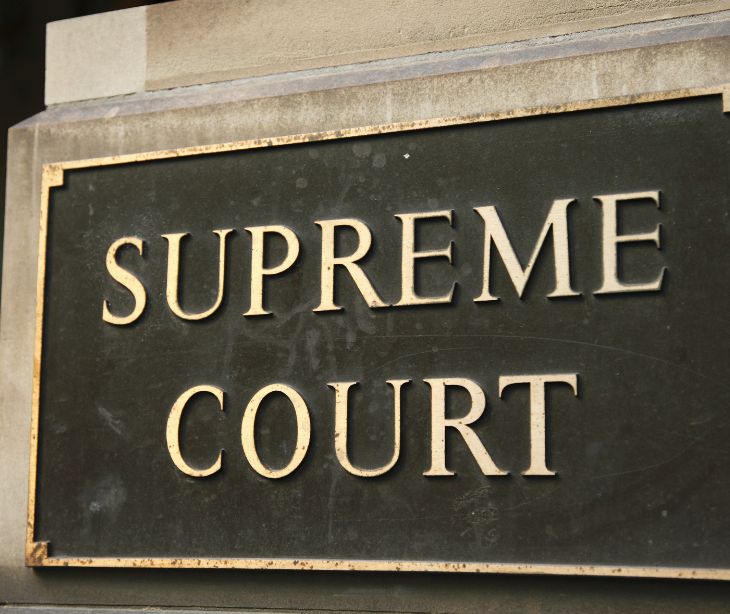2 min read
Supreme court makes new decision on aggravated identity theft law
Abby Grifno
June 12, 2023

Last week, the Supreme Court ruled to narrow the reach of identity theft law, rejecting an interpretation of the law that would add 2 years in prison for certain felonies.
What happened
The issue was brought before the court because of a man, David Dubin, who was convicted of overbilling Medicaid for psychological services never provided to patients. In 2013, Dubin was examining a patient when the patient informed Dubin that he had exhausted his Medicaid benefits. Dubin ended the evaluation and instructed an employee to file a Medicaid reimbursement claim, including the patient’s Medicaid ID and name. Eventually, the reimbursement was approved, but the exam that qualified for it was never fulfilled.
Ultimately, in 2017, federal prosecutors found that David Dubin and his father, William Dubin, had engaged in 20 counts of overbilling Medicaid, resulting in $300,000 in fraudulent reimbursements. They were also convicted of 6 counts of aggravated identity theft.
In David Dubin’s 2019 sentencing, he was sentenced to one year for fraudulent Medicaid claims and 2 years for aggravated identity theft. The charges for aggravated identity theft were appealed at the Supreme Court level and ultimately rejected.
The judges found that if Dubin’s actions were considered aggravated identity theft, the 2-year minimum sentencing would reach too far, potentially affecting anyone who overbills.
Why it matters
The original ruling followed an interpretation of the 2004 Identity Theft Penalty Enhancement Act, which stated it was a felony for an individual to knowingly transfer, possess, or use a means of identification without lawful authority. The law stated that these individuals would be subject to 2 years in prison.
While the law was originally created to prevent credit fraud, which had been skyrocketing at the time, the vague law allowed for a variety of interpretations with a hefty 2-year penalty. In the opinion released by the Supreme Court, the judges noted that the law needed clarity, or else the issue would likely reoccur in lower courts. Nevertheless, the opinion has set a precedent that even if identity fraud has taken place, it may, in some cases, be a byproduct of a different law being broken.
What was said
In the opinion, delivered by Judge Sotomayor, the judges found that by upholding the original government reading, its far reach would “sweep in the hour-inflating lawyer, the steak-switching waiter, the building contractor who tacks an extra $10 onto the price of the paint he purchased. So long as they used various common billing methods, they would all be subject to a mandatory two years in federal prison.”
Concerning the Dubin case, the judges said the “use of the patient’s name was not at the crux of what made the underlying overbilling fraudulent. The crux of the healthcare fraud was a misrepresentation about the qualifications of petitioner’s employee.”
The bottom line
The Supreme Court judges determined that the law would ultimately need to be changed by Congress to fully limit its scope. Until then, related issues could arise from willful or unintentional overbilling in the healthcare sector.
Those responsible for billing healthcare should pay close attention to the aftermath of the Supreme Court’s ruling. These individuals should also be aware of the potentially hefty consequences of overbilling and aggravated identity theft.
Subscribe to Paubox Weekly
Every Friday we'll bring you the most important news from Paubox. Our aim is to make you smarter, faster.



